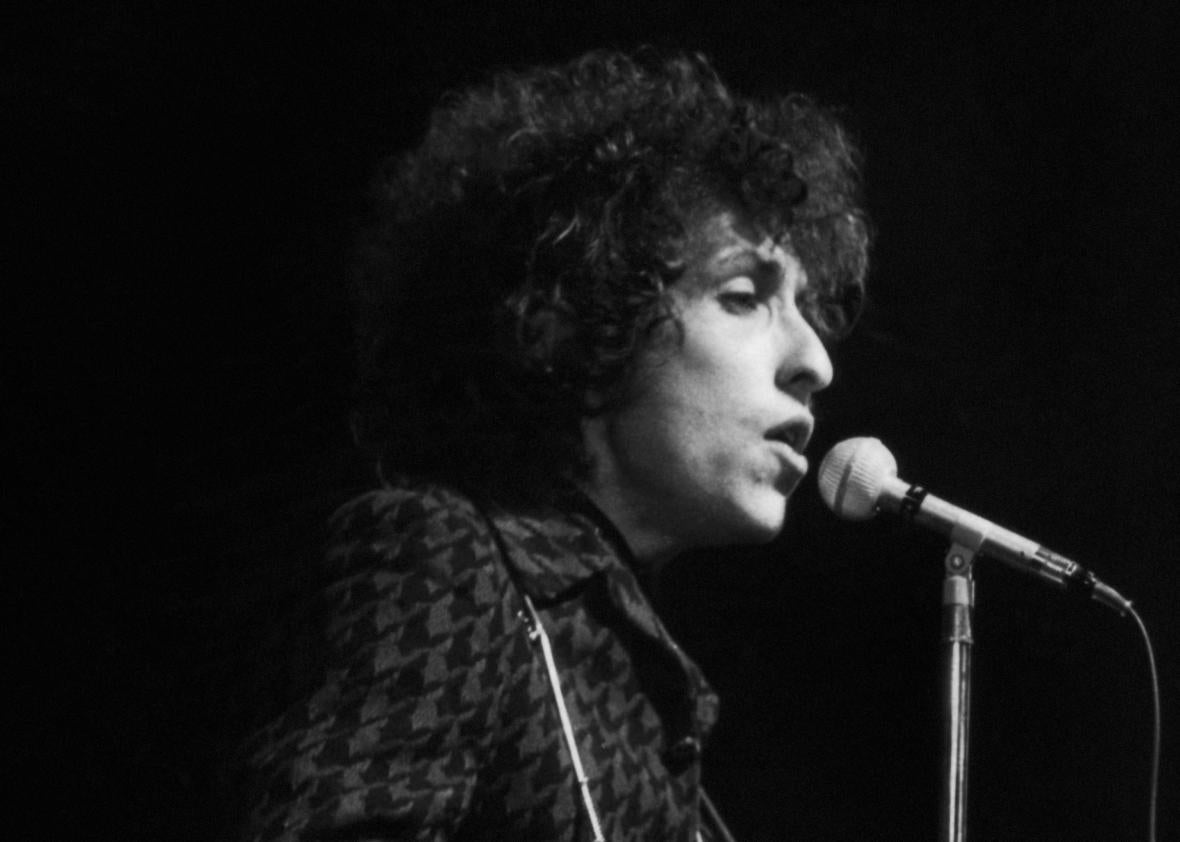For Bob Dylan connoisseurs, the release of The Cutting Edge 1965–1966: The Bootleg Series Vol. 12 is a momentous occasion. It encompasses the studio sessions that gave us the albums Bringing It All Back Home, Highway 61 Revisited, and Blonde on Blonde, and it’s available as a 2-CD sampler, a reasonable 6-CD version, and an ultra-comprehensive 18-CD collector’s edition for the true Dylan obsessives. The collector’s edition, which compiles every outtake from those crucial 1965–66 sessions, may have been released by Columbia primarily for copyright reasons, but for those willing to slog through the 19-hour runtime, there are some unexpected pleasures.
For a Billboard review, Chris Willman listened to the whole 18-CD set in a marathon session. Here’s how he describes one track:
Dylan grows increasingly frustrated by how he feels the Hawks are mangling “She’s Your Lover Now.” “Aw, it’s ugly,” he says. “I can’t. I can’t even.” Did Bob Dylan just invent the 21st century catchphrase “I can’t even”? I think he did!
Some background: The Jan. 21, 1966, session took place as Dylan was putting together the songs that would become Blonde on Blonde. He was recording in Columbia’s New York studio with a group that included members of the Hawks, who backed him up on his first “electric” tour and would soon find fame on their own as The Band. Dylan was dissatisfied with how “She’s Your Lover Now” was turning out—although a nearly complete full-band version of the song, first compiled on The Bootleg Series Vol. 1–3, sounds awfully good. After the rehearsal in which Dylan “can’t even,” he dismissed the band and tried doing the song on his own, accompanying himself on the piano. That sounds awfully good too. (Elvis Costello says it’s his favorite track on The Cutting Edge, telling Esquire, “The whole clambake is worth that one performance.”) But Dylan would ultimately abandon the song, leaving it off Blonde on Blonde, which was mostly recorded by studio musicians in Nashville, Tennessee, after Dylan moved down there in February 1966. (See the Sean Wilentz essay “Mystic Nights” for more on these sessions.)
So was Dylan half a century ahead of his time because he couldn’t even? For more on “I can’t even” and recent elaborations like “I’ve lost the ability to even,” see:
- Tia Baheri, “Your Ability to Can Even: A Defense of Internet Linguistics,” the Toast, Nov. 20, 2013
- Rebecca Cohen, “In Defense of I Can’t Even,” Lexicon Valley (Slate blog), March 12, 2014
- Michael Reid Roberts, “Life Sentences: The ABCs of ‘I Can’t Even.’ ” the American Reader, May 16, 2014
- Clive Thompson, “I Can’t Even.” the Message (Medium blog), July 21, 2014
- Gretchen McCulloch, “Why Is It That You ‘Can’t Even’ but You Never Find That You ‘Can Even’?“ Mental Floss, March 24, 2015
I like Gretchen McCulloch’s characterization of “I can’t even” and its kin as “stylized verbal incoherence mirroring emotional incoherence.” When Dylan complained, “I can’t… I can’t even…”, he was certainly experiencing emotional incoherence, and in his verbal expression of it, he was perhaps trying to convey something like, “I can’t even get through this song (or this sentence).” Of course, that’s a long way from the stylized incoherence of modern-day can’t-eveners, as spoofed not too long ago on Saturday Night Live.
A version of this post appeared on Language Log.
